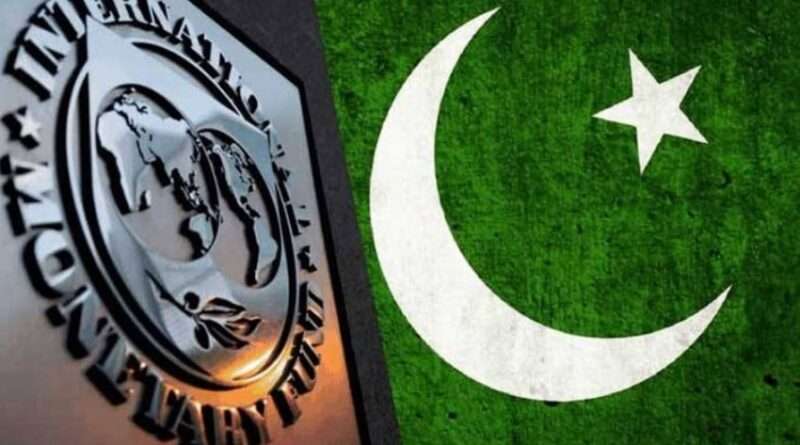IMF Intensifies Anti-Corruption Scrutiny in Pakistan
|
Getting your Trinity Audio player ready...
|
IMF Launches Second Anti-Corruption Initiative in Pakistan, Focusing on the Sugar Sector and Over 30 Institutions
ISLAMABAD – The International Monetary Fund (IMF) has dispatched a second Corruption and Governance Diagnostic Mission to Pakistan within just a few months. This latest mission aims to engage with more than 30 key government departments and institutions, including the registrars of both the Supreme Court and the accountability court, as part of its comprehensive effort to combat corruption and enhance governance standards in the country.
IMF Launches Second Anti-Corruption Initiative in Pakistan, Focusing on the Sugar Sector and Over 30 Institutions
ISLAMABAD – The International Monetary Fund (IMF) has dispatched a second Corruption and Governance Diagnostic Mission to Pakistan within just a few months. This latest mission aims to engage with more than 30 key government departments and institutions, including the registrars of both the Supreme Court and the accountability court, as part of its comprehensive effort to combat corruption and enhance governance standards in the country.
According to Pakistani officials, the IMF delegation began its work on Thursday and will remain in Pakistan until April 14. While an official statement from the IMF regarding the purpose and scope of this follow-up visit is still pending, it is understood that the mission will focus on issues previously identified, particularly concerning price control mechanisms and regulatory weaknesses in the sugar and construction industries.
Expansive Scope of Mission
During its 12-day stay, the IMF will consult more than 30 government institutions. These include anti-corruption bodies from Punjab, Sindh, and Khyber-Pakhtunkhwa (K-P). Interestingly, the mission’s scope goes beyond standard corruption audits and includes topics such as amendments to the Pakistan Sovereign Wealth Act—originally part of the IMF’s last programme review.
In addition, discussions will cover budget execution strategies, debt management systems, treasury single accounts, and the proliferation of ministerial bank accounts. The IMF intends to review cash forecasting procedures and how they align with national debt coordination efforts.
Finance Ministry spokesperson Qumar Abbasi had yet to comment on why these broader economic and fiscal governance matters are being covered under what is formally a corruption-focused mission.
**Focus on the Sugar Sector and Market Manipulation**
One important area of focus is the sugar sector, particularly the government’s price control policies. Critics argue that these policies disproportionately benefit sugar mill owners at the expense of consumers and market fairness. The IMF team is scheduled to meet with the Ministry of National Food Security as well as the Pakistan Sugar Mills Association (PSMA).
The PSMA has been the subject of multiple investigations by the Competition Commission of Pakistan (CCP), which has imposed over Rs44 billion in penalties on sugar mills for alleged cartelization and price-fixing. However, enforcement of these penalties has stalled due to legal stay orders. The IMF is seeking updates from the CCP regarding the current status of these enforcement actions and their progress through the courts.
Wider Oversight Across Financial and Legal Systems
The IMF’s agenda also covers regulatory performance in the financial sector. This includes discussions with the central bank on its supervisory role, internal integrity, licensing processes for commercial banks, and the standards used to evaluate the qualifications of board members and senior executives.
The mission will also engage with the Federal Investigation Agency (FIA) to assess the effectiveness of its anti-corruption investigations and operational methods. Another significant meeting will involve the National Accountability Bureau (NAB), where the focus will be on risk assessments, reforms, money laundering probes, and legal proceedings.
Further meetings will evaluate how well procurement practices in the SBP and banking institutions guard against corruption. The Financial Monitoring Unit (FMU) is also on the mission’s itinerary for in-depth consultations.
Additionally, the IMF will review the implementation of Pakistan’s Right to Access to Information legislation—a domain where compliance remains patchy due to institutional reluctance to share public data.
Upon conclusion of the mission, the IMF will publish a comprehensive report by late July or early August, outlining the findings and offering specific governance and anti-corruption improvement strategies.
Frequently Asked Questions (FAQs)
1.Why is the IMF conducting another anti-corruption mission in Pakistan?
The IMF has launched this second mission to further analyze governance and corruption issues. The goal is to finalize a set of recommendations aimed at strengthening institutional transparency and accountability.
2. Which areas are under IMF scrutiny this time?
The IMF is focusing on more than 30 institutions, including the judiciary, the sugar sector, financial regulators, and anti-corruption bodies at both federal and provincial levels.
3. What role does the sugar sector play in this mission?
The IMF is examining government price controls and allegations of market manipulation within the sugar industry. This includes legal challenges related to penalties imposed on sugar mills by the Competition Commission of Pakistan.
4. Will this mission impact Pakistan’s economic program with the IMF?
Although this is officially a governance mission, it intersects with regular IMF program review topics, such as debt management, budget execution, and sovereign wealth reforms, indicating broader implications for future financial support.
5. What outcomes are expected from this visit?
The mission aims to produce a public report by July or August that identifies gaps in governance and outlines reforms to enhance anti-corruption frameworks, financial oversight, and judicial efficiency.




